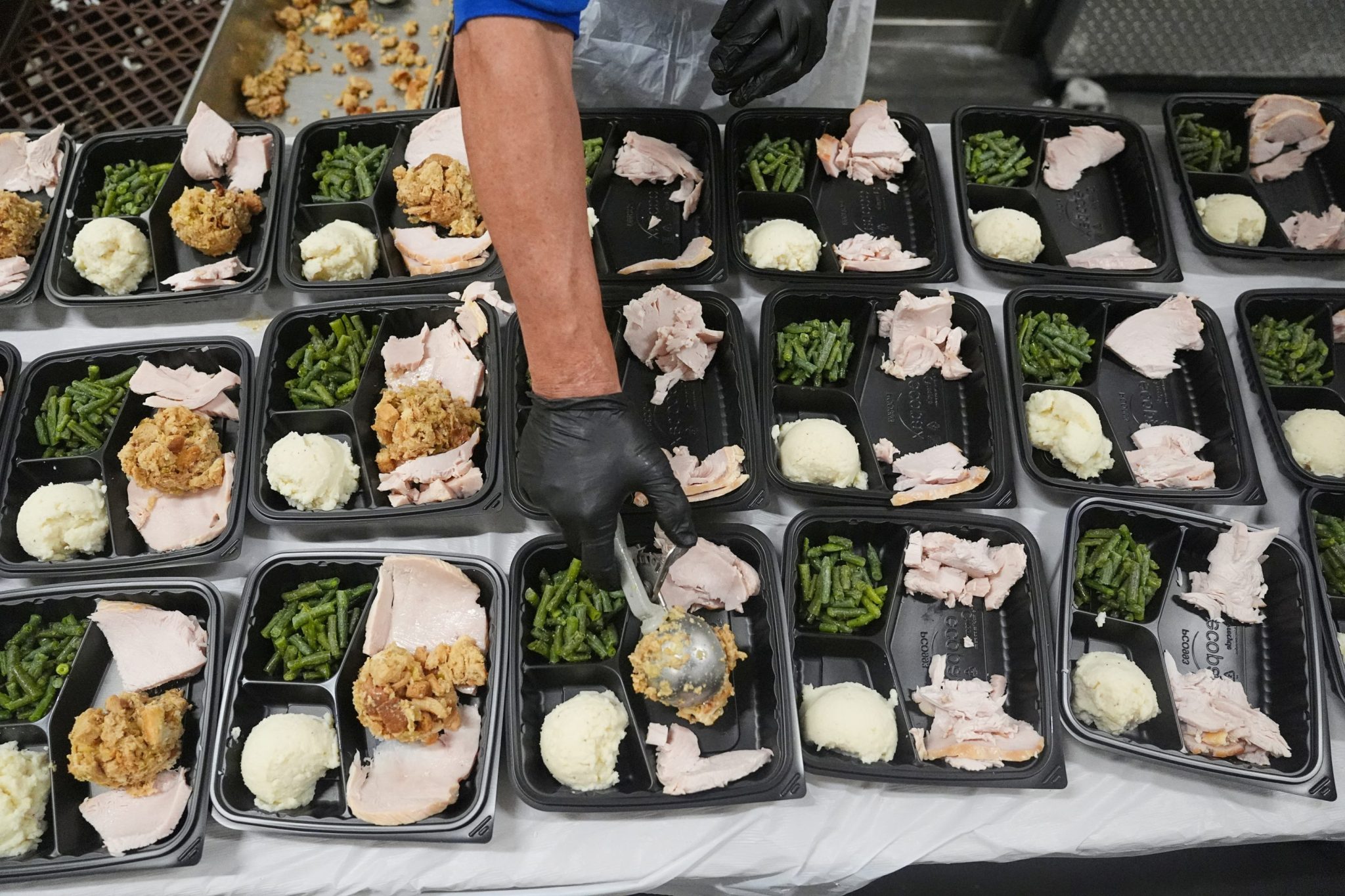The judges in Massachusetts and Rhode Island have given the administration some leeway on whether to fund the Supplemental Nutrition Assistance Program (SNAP) partially or in full for November. This uncertainty is expected to affect how the situation unfolds and will delay payments for many beneficiaries whose benefit cards would normally be recharged early in the month.
The U.S. Department of Agriculture (USDA) had planned to freeze payments to SNAP starting November 1, stating that it could no longer continue funding the program due to the government shutdown. SNAP serves about one in eight Americans and is a crucial component of the nation’s social safety net, costing approximately $8 billion per month across the country.
U.S. Senator Amy Klobuchar, a Minnesota Democrat and the ranking member of the Senate Agriculture Committee that oversees SNAP, commented on Friday’s judicial rulings. She said these decisions from judges appointed by former President Barack Obama confirm what Democrats have been saying: “The administration is choosing not to feed Americans in need, despite knowing that it is legally required to do so.”
### Judges Agree at Least One Fund Must Go Toward SNAP
Democratic state attorneys general and governors from 25 states, along with the District of Columbia, challenged the administration’s plan to pause SNAP. They argued that the administration has a legal obligation to keep the program running in their jurisdictions.
The administration stated it was not permitted to use a contingency fund of about $5 billion for the program. This contradicted an earlier USDA plan before the shutdown that indicated this money would be accessed to keep SNAP operational. The Democratic officials contended not only that this money could be used, but that it must be used. They also pointed out a separate fund with around $23 billion is available for this purpose.
In Providence, Rhode Island, U.S. District Judge John J. McConnell ruled from the bench in a case brought by cities and nonprofits that the program must be funded using at least the contingency funds. He requested an update on progress by Monday. Along with ordering the federal government to utilize emergency reserves to backfill SNAP benefits, Judge McConnell also ruled that all previous work requirement waivers must continue to be honored.
The USDA had terminated existing waivers that exempted work requirements for older adults, veterans, and others during the shutdown.
Similar elements appeared in the Boston case, where U.S. District Judge Indira Talwani ruled in a written opinion that the USDA must pay for SNAP, calling the suspension “unlawful.” She ordered the federal government to inform the court by Monday whether it will use the emergency reserve funds to provide reduced SNAP benefits for November or fully fund the program “using both contingency funds and additional available funds.”
“Defendants’ suspension of SNAP payments was based on the erroneous conclusion that the Contingency Funds could not be used to ensure continuation of SNAP payments,” Judge Talwani wrote. “This court has now clarified that Defendants are required to use those Contingency Funds as necessary for the SNAP program.”
### For Many, Benefits Will Still Be Delayed After the Ruling
Regardless of the rulings, benefits for millions of people will be delayed in November because the process of loading benefits onto cards can take a week or more in many states. The administration has not yet indicated whether it will appeal the rulings.
States, food banks, and SNAP recipients have been preparing for a sudden change in how low-income individuals can access groceries. Advocates and beneficiaries warn that halting food aid would force many to choose between buying groceries and paying other essential bills.
Most states have announced increased or expedited funding for food banks or introduced innovative ways to load at least some benefits onto SNAP debit cards.
Across the country, advocates who had been raising alarms for weeks about the impending SNAP benefit cutoff were relieved by the court rulings on Friday. However, they acknowledged that this victory is temporary and possibly incomplete.
“Thousands of nonprofit food banks, pantries, and other organizations across the country can avoid the impossible burden that would have resulted if SNAP benefits had been halted,” said Diane Yentel, president and CEO of the National Council of Nonprofits, one of the plaintiffs in the Rhode Island case.
### The Possibility of Reduced Benefits Also Means Uncertainty
Cynthia Kirkhart, CEO of Facing Hunger Food Bank in Huntington, West Virginia, said her organization and the pantries it supports in Kentucky, Ohio, and West Virginia will maintain extra hours this weekend, anticipating that people whose benefits typically arrive at the start of the month won’t receive them on time.
“What we know, unless the administration is magical, is nothing is going to happen tomorrow,” she said.
Kristle Johnson, a 32-year-old full-time nursing student and mother of three in Florida, expressed concern about the possibility of reduced benefits. Despite buying meat in bulk, carefully planning meals, and avoiding junk food purchases, she noted that her $994 monthly benefit does not cover a full month’s groceries.
“Now I have to deal with someone who wants to get rid of everything I have to keep my family afloat until I can better myself,” Johnson said, referring to the Trump administration.
### The Rulings Don’t Resolve Partisan Tussles
At a Washington press conference earlier on Friday, Agriculture Secretary Brooke Rollins, whose department administers SNAP, stated that the contingency funds in question would not cover the program’s costs for long.
Speaking alongside House Speaker Mike Johnson at the Capitol, Rollins blamed Democrats for what she called a “disgusting dereliction of duty” for refusing to end their Senate filibuster as they await an extension of health care funding.
A recent push in Congress to continue SNAP funding during the shutdown failed.
### SNAP Eligibility and Impact
To qualify for SNAP in 2025, a family of four’s net income after certain expenses cannot exceed the federal poverty line, which is about $31,000 per year. Last year, SNAP provided assistance to 41 million people, nearly two-thirds of whom were families with children.
“The court’s ruling protects millions of families, seniors, and veterans from being used as leverage in a political fight and upholds the principle that no one in America should go hungry,” said Skye Perryman, president and CEO of Democracy Forward, commenting on the Rhode Island decision.
https://fortune.com/2025/10/31/snap-benefits-emergency-reserves-federal-government-shutdown-usda/


